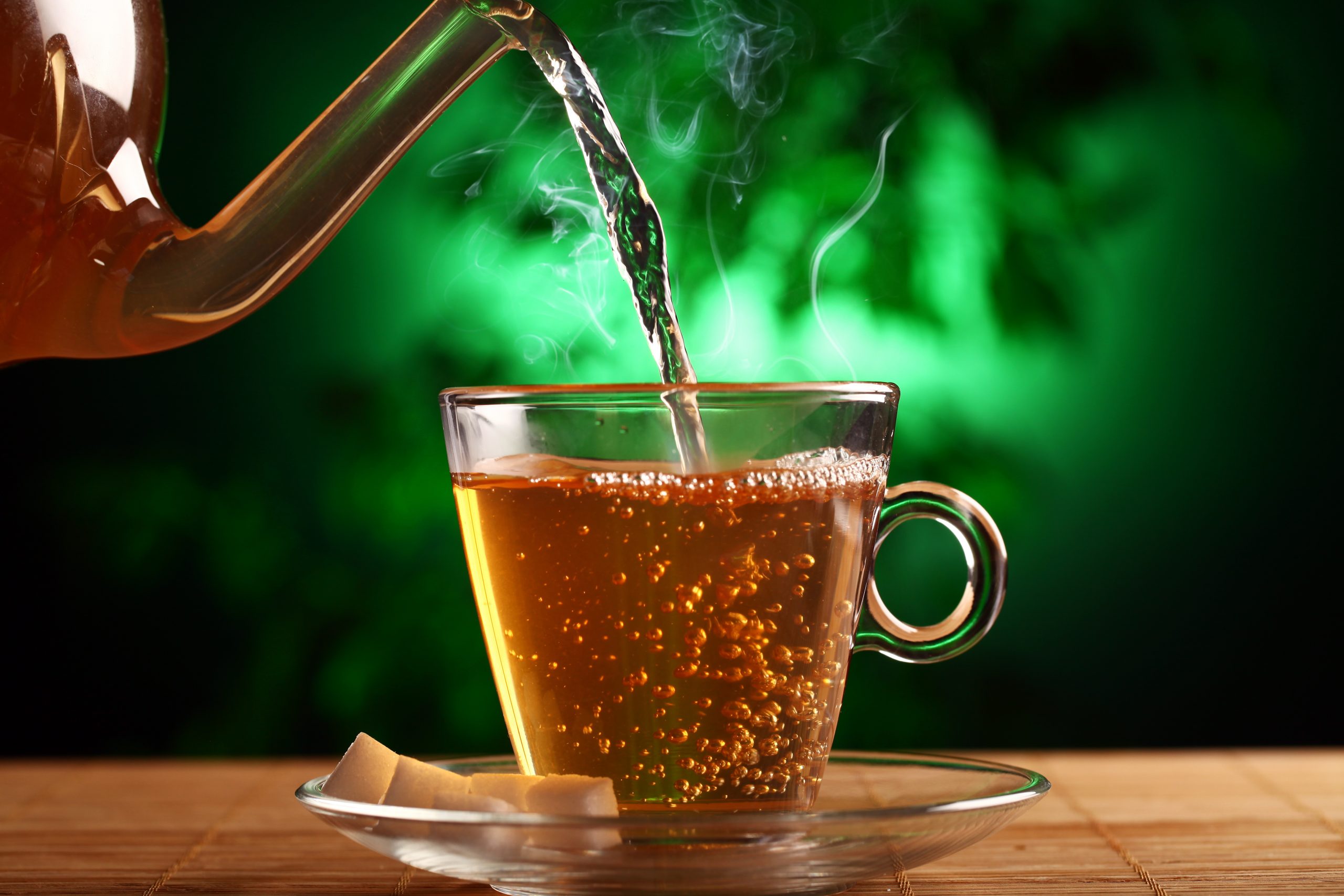Paradoxical benefits of green tea named
العلماء يكتشفون تناقضاً في فوائد الشاي الأخضر
The mechanism of action of green tea on the body turned out to be more complicated than it was thought. These conclusions were reached by a group of scientists from the Federal Institute of Technology in Zurich, who published the results of their research in the journal Aging.
Many experts have repeatedly confirmed the benefits of green tea: for example, the drink contains catechins that slow down the aging process. These substances were thought to be antioxidants that prevent oxidative stress in the body caused by aggressive free oxygen radicals and thus help avoid damage to cells or DNA, but researchers from Zurich have carefully studied how catechins act on the nematode worm C. elegans. And they came to the paradoxical conclusion: instead of suppressing oxidative stress, green tea polyphenols contribute to it.
“These are not antioxidants, but prooxidants that improve the body’s ability to defend itself, like a vaccine,” – explained the head of the research team, Professor Michael Ristow. According to the authors of the work, a short-term surge of oxidative stress allows the body to adapt to this harmful process and enhance the protective capabilities of cells.
Experiments have shown that catechins prolonged life and improved the physical condition of experimental nematodes. The conclusions of scientists can be extended to humans, since the basic biochemical processes by which organisms neutralize free oxygen radicals are the same in almost all creatures. At the same time, Ristow recommended drinking green tea, since in black tea, useful prooxidants are destroyed due to fermentation.
توصّلت مجموعةٌ من العلماء من المعهد الفيدراليّ للتكنولوجيا في زيورخ إلى استنتاج مفادُه أنَّ آلية عمل الشاي الأخضر على الجسم أكثر تعقيدًا مما كان يُعتقد سابقًا، ونشر العلماءُ نتائجَ أبحاثهم في مجلة «Aging».
أكّد العديدُ من الخبراء مرارًا وتَكرارًا فوائد الشاي الأخضر، فعلى سبيل المثال، يحتوي المشروب على مادة الكاتيكين التي تبطِّئ عملية الشيخوخة. كان يُعتقد أنَّ هذه المواد هي مضادات الأكسدة التي تمنع الإجهاد التأكسدي في الجسم الناجم عن جذور الأكسجين الحرة العدوانية، وبالتالي تساعد في تجنب تلف الخلايا أو الحمض النووي.
ومع ذلك، فقد درس الباحثون في زيورخ بعناية كيفية تأثير مادة الكاتيكين على دودة من الديدان الخيطية «C. elegans» وتوصلوا إلى استنتاج متناقض مفاده أنه بدلًا من كبح الإجهاد التأكسدي، فإن بوليفينول الشاي الأخضر يسهم فيه. وأوضح رئيس فريق البحث، البروفيسور مايكل ريستو: «هذه ليست مضادات الأكسدة، ولكن بروكسيد (تحفز الإجهاد التأكسدي)، التي تحسّن قدرة الجسم على الدفاع عن نفسه، مثل اللقاح».




